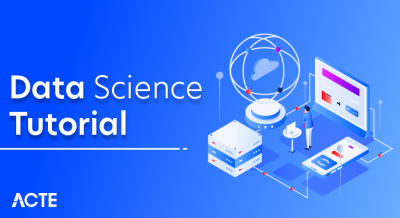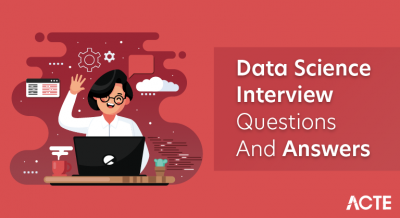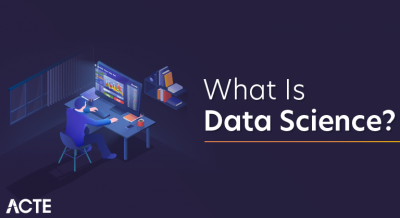
- Introduction
- AI in Healthcare
- AI in Finance
- AI in Retail
- AI in Manufacturing
- AI in Transportation
- AI in Education
- AI in Entertainment
- AI in Cybersecurity
- AI in Agriculture
- Future Potential Areas
- Conclusion
Introduction
Artificial Intelligence (AI) has transitioned from a theoretical concept to a driving force in modern technology. Across various industries, AI is transforming the way we live, work, and interact. AI systems use machine learning, deep learning, neural networks, and Data Science Training to mimic human intelligence, analyze vast amounts of data, and make informed decisions. Its ability to process, learn, and adapt makes AI not only a valuable tool for businesses but also a key player in enhancing user experiences and improving efficiency. From healthcare to finance, AI is increasingly being used to solve complex problems, optimize operations, and create new opportunities. As technology advances, industries continue to explore and implement AI in innovative ways. In this article, we will explore the impact of AI across different sectors, including healthcare, finance, retail, manufacturing, transportation, education, entertainment, cybersecurity, and agriculture. We will also look at future areas of AI potential and how it may shape industries in the years to come.
Would You Like to Know More About Data Science? Sign Up For Our Data Science Course Training Now!
AI in Healthcare
Healthcare is one of the most promising areas where AI is making significant strides. AI is being used to enhance patient care, reduce human error, and optimize healthcare operations. One of the most common applications of AI in healthcare is in diagnostic tools. Machine learning algorithms can analyze medical images, such as X-rays and MRIs, and detect signs of diseases like cancer with remarkable accuracy, as explained in the What is Data Science guide. For example, AI systems are able to identify early-stage tumors, which might be missed by human eyes, allowing for quicker and more effective treatment. Additionally, AI-powered predictive analytics can help doctors predict patient outcomes and suggest personalized treatment plans. With the help of AI, healthcare providers can analyze vast amounts of medical data and offer more accurate diagnoses, ultimately improving patient care and reducing costs. Moreover, AI has also found a place in drug discovery. By analyzing data from previous studies and clinical trials, AI can help identify promising new drug compounds, speeding up the process of drug development. Another significant advancement is AI-driven virtual assistants and chatbots, which can provide patients with real-time assistance, from answering basic health queries to helping schedule appointments. These tools are improving patient engagement and ensuring that healthcare professionals have more time to focus on complex cases.
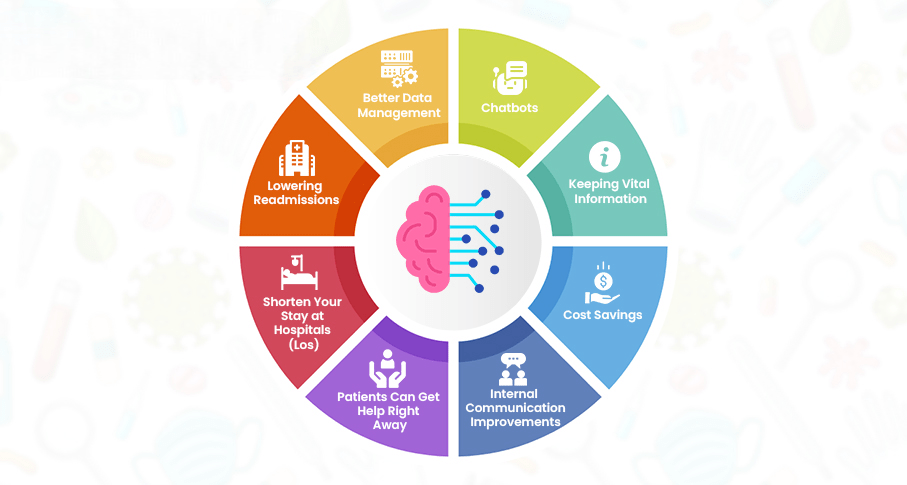
AI in Finance
- Fraud Detection: AI is used to analyze transaction patterns in real time, identifying unusual behavior and flagging potential fraudulent activities, helping financial institutions prevent losses.
- Algorithmic Trading: Advanced AI models analyze market trends and execute trades faster than humans, making split-second decisions to capitalize on market opportunities.
- Robo-Advisors: AI-powered robo-advisors provide personalized financial advice, offering investment strategies based on individual risk profiles, making financial planning more accessible, as highlighted in the Python Project Ideas for beginners guide.
- Credit Scoring: AI models evaluate a broader range of factors, such as spending patterns and online behaviors, to create a more accurate credit risk profile, improving lending decisions.
- Enhanced Decision-Making: AI improves decision-making processes in finance by analyzing vast amounts of data quickly, enabling firms to make informed and timely choices.
- Customer Experience: AI enhances customer experiences by providing more efficient, personalized services, such as personalized investment strategies and faster response times for financial inquiries.
AI in Retail
In the retail industry, AI is transforming the way companies interact with customers and manage their supply chains. One of the most impactful uses of AI is in personalized shopping experiences. By analyzing customer data, AI systems can predict what products a consumer might be interested in and offer personalized recommendations. This not only improves customer satisfaction but also drives sales and increases customer loyalty. AI is also revolutionizing inventory management. By leveraging machine learning algorithms, retailers can predict demand for products more accurately, ensuring that they have the right amount of stock available at the right time. This reduces the risk of overstocking or understocking products, saving costs and enhancing operational efficiency, as explained in the Overview of Regression. Moreover, AI-driven chatbots and virtual assistants are becoming commonplace in e-commerce. These bots help customers find products, answer questions, and solve issues in real time, improving the overall shopping experience. Additionally, AI is being used in visual search technology, where customers can upload images of products and find similar items in online stores. This is streamlining the shopping process and enabling consumers to find exactly what they’re looking for with ease.
AI in Manufacturing
- Automation & Efficiency: AI is driving automation in the manufacturing sector, allowing machines to analyze production data, detect faults in real-time, and optimize processes to reduce waste and improve quality.
- Predictive Maintenance: By analyzing sensor data from machinery, AI can predict machine failures before they happen, enabling manufacturers to perform maintenance proactively, reducing downtime and saving costs.
- Quality Control: AI-powered systems enhance quality control by detecting defects and inconsistencies in products with higher speed and accuracy than traditional manual inspections, ensuring only high-quality products are delivered to consumers.
- Supply Chain Optimization: AI optimizes logistics and inventory management by predicting demand fluctuations, optimizing shipping routes, and helping companies respond quickly to changing market conditions.
- Enhanced Operational Efficiency: AI improves operational efficiency by automating tasks, predicting issues before they arise, and optimizing processes across various manufacturing stages.
- Cost Reduction: AI’s ability to predict problems, optimize processes, and improve quality control helps reduce costs and enhance profitability within the manufacturing industry.
AI in Transportation
AI is playing a transformative role in the transportation sector, especially in autonomous vehicles. Self-driving cars and trucks rely on AI systems to process data from sensors, cameras, and radar to navigate roads safely. AI algorithms help vehicles understand their environment, detect obstacles, and make driving decisions in real time. While fully autonomous vehicles are still in development, AI is already being used in advanced driver assistance systems (ADAS), such as lane-keeping assistance, adaptive cruise control, and automated braking. In addition, AI-powered traffic management systems, enhanced through Data Science Training can optimize traffic flow in real time, reducing congestion and improving overall efficiency. By analyzing data from traffic cameras, sensors, and GPS, AI can predict traffic patterns, adjust signal timings, and reroute vehicles to avoid bottlenecks. This has the potential to significantly reduce commute times and improve urban mobility. AI is also being used in fleet management. Companies with large fleets of vehicles, use AI to track vehicle performance, optimize routes, and monitor driver behavior, all of which help reduce costs and improve safety.
Want to Pursue a Data Science Master’s Degree? Enroll For Data Science Masters Course Today!
AI in Education
- Personalized Learning: AI enables adaptive learning systems that tailor educational content based on each student’s strengths, weaknesses, and learning styles, ensuring personalized learning paths and support.
- Adaptive Learning Systems: These AI-driven systems provide customized feedback, content, and recommendations, allowing students to progress at their own pace for more effective learning outcomes.
- Assessment & Grading: AI-powered tools streamline the grading process by analyzing student work, assigning grades, and offering constructive feedback, reducing teachers’ workload and ensuring fairness.
- Administrative Efficiency: AI assists in managing administrative tasks such as answering student queries, handling course registrations, and providing schedule information through AI-powered chatbots.
- Reduced Teacher Workload: By automating grading and providing learning insights, AI reduces the time teachers spend on repetitive tasks, allowing them to focus more on instruction and student engagement.
- Improved Educational Experience: Overall, AI enhances both teaching and administrative processes, leading to a more efficient, engaging, and accessible education system.
- Threat Detection & Mitigation: AI-driven systems can detect and respond to cyber threats such as malware, phishing, and DDoS attacks faster than human analysts by identifying patterns in vast data sets.
- Proactive Defense: Machine learning algorithms help predict and prevent potential vulnerabilities or attacks, enabling organizations to act before damage occurs.
- Identity Verification: AI powers biometric systems like facial recognition and fingerprint scanning to ensure secure and accurate access control to sensitive data.
- Access Control: Advanced AI systems manage and authenticate user identities, enhancing security across digital platforms and reducing unauthorized access risks.
- Automated Security Operations: AI helps automate routine security tasks by monitoring network traffic, analyzing logs, and generating real-time alerts for faster incident response.
- Strategic Focus for Teams: By handling repetitive tasks, AI allows cybersecurity professionals to concentrate on high-level strategy and threat prevention planning.
AI in Entertainment
The entertainment industry has rapidly integrated AI across multiple facets, ranging from personalized content recommendations to innovative content creation. One of the most prominent uses of AI is in recommendation engines, which have become a cornerstone feature of streaming platforms like Netflix, Spotify, and YouTube. These systems analyze a user’s viewing or listening history to predict and suggest content tailored to their preferences, significantly enhancing user engagement and retention. Beyond recommendations, AI is making strides in the realm of content creation. Advanced AI models are now capable of generating music, writing scripts, and even producing deepfake videos. To support these advancements, understanding SQL for Data Science basics is increasingly important, as managing and analyzing large datasets is foundational to training and fine-tuning these intelligent systems. While still an evolving technology, these developments are beginning to reshape the creative process, offering new tools and possibilities for creators. In the gaming sector, AI plays a crucial role in enhancing user experience by enabling the development of intelligent non-playable characters (NPCs) that respond dynamically to player behavior, resulting in more interactive and immersive gameplay. Additionally, AI is being leveraged in virtual reality (VR) and augmented reality (AR) applications, pushing the boundaries of immersive storytelling and interactive entertainment. These AI-driven innovations not only improve content delivery and user interaction but also open up new avenues for creativity, customization, and efficiency across the entertainment landscape. As AI technology continues to advance, its influence on how content is produced, consumed, and experienced in the entertainment industry is expected to grow even further.
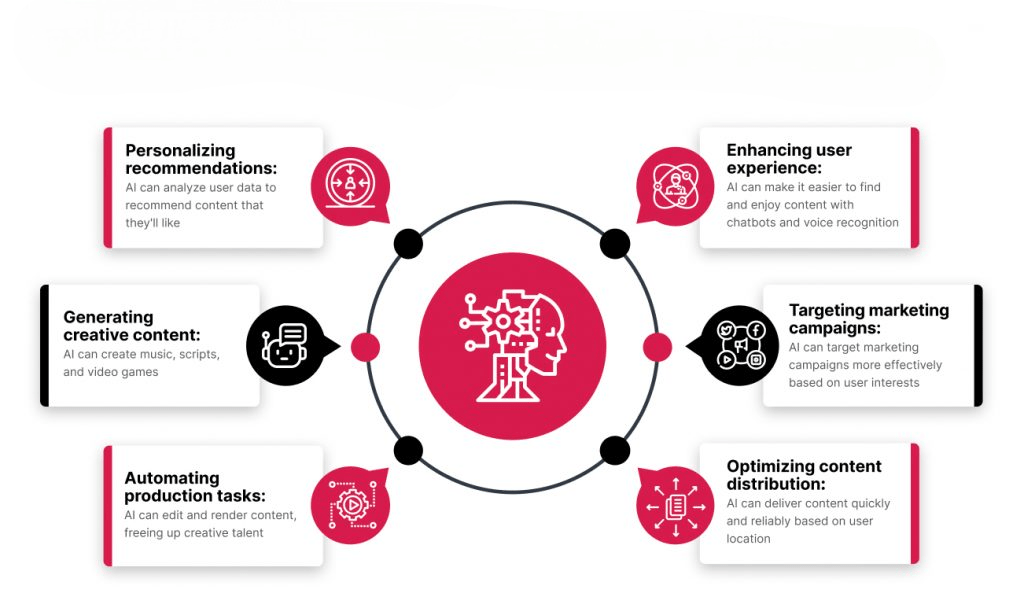
AI in Cybersecurity
AI in Agriculture
In agriculture, AI is revolutionizing traditional farming methods by enhancing resource efficiency and boosting productivity through data-driven decision-making. AI-powered systems collect and analyze data from various sources such as soil sensors, weather forecasts, and satellite imagery to assist farmers in making more accurate and timely decisions. These systems often rely on techniques described in What is Computer Vision Explained where computer vision enables machines to interpret and act on visual data such as identifying crop health or monitoring field conditions from satellite images. This approach, known as precision farming, enables continuous monitoring of soil quality, water consumption, and crop health, allowing for more targeted and efficient use of resources. As a result, farmers can increase crop yields while minimizing waste and environmental impact. Additionally, AI plays a vital role in crop disease prediction by leveraging historical data, current weather patterns, and real-time sensor inputs to anticipate the onset of diseases or pest infestations. This early warning system empowers farmers to implement preventive measures swiftly, reducing the risk of widespread crop damage. Beyond the fields, AI is also transforming agricultural supply chain management. It helps predict market demand for different crops, optimize logistics and distribution routes, and minimize food waste by ensuring timely and efficient delivery. By integrating AI into every stage of the agricultural process, from planting to harvesting to distribution, the sector is becoming more sustainable, productive, and resilient in the face of changing environmental and market conditions.
Future Potential Areas
The future of AI holds immense potential across many industries. As AI technology continues to evolve, its applications are likely to expand further, creating new possibilities for automation, efficiency, and problem-solving. Some future potential areas include:
- AI in space exploration: Autonomous spacecraft and AI-driven rovers can help in exploring distant planets, moons, and asteroids.
- AI in healthcare diagnostics: AI could become the primary method for diagnosing complex diseases by analyzing genetic data and predicting health risks.
- AI in climate change: AI models can predict climate change patterns and suggest strategies for reducing emissions and mitigating environmental damage.
Conclusion
AI has already begun to revolutionize a wide range of industries, and its transformative impact is poised to expand even further in the coming years. In sectors like healthcare, AI is enhancing patient care through advanced diagnostics, personalized treatment plans, and real-time monitoring, leading to more effective and efficient medical services. In transportation, AI is enabling the development of autonomous vehicles, improving traffic management, and enhancing safety on the roads. These advancements highlight how AI, supported by Data Science Training is not just a tool for automation but a catalyst for innovation, driving greater efficiency and opening up new possibilities across various domains. As AI technology continues to evolve, it will fundamentally reshape how businesses operate by streamlining workflows, optimizing decision-making, and enabling smarter data utilization. Moreover, AI is changing the way people interact with technology, making digital systems more intuitive, responsive, and human-like. From smart assistants to intelligent customer service bots, AI is making our interactions with machines more seamless and personalized. On a broader scale, industries are evolving rapidly as they integrate AI into their core strategies, leveraging its capabilities to remain competitive and future-ready. The future potential of AI is virtually limitless, as its capacity to solve complex problems, uncover hidden patterns in data, and generate innovative solutions positions it as an indispensable force in today’s and tomorrow’s world. As we move forward, AI will not only enhance existing processes but also pave the way for breakthroughs that were once thought to be impossible, marking a new era of technological progress and societal transformation.


